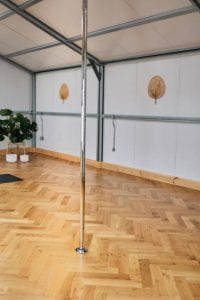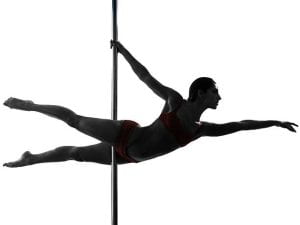Shadow Banning Doesn’t Exist
#mushroom
Recent posts from #mushroom are currently hidden because the community has reported some content that may not meet Instagram’s community guidelines.
Dear Instagram, get your mind outta the gutter! Mushrooms are probably one of the most searched hashtags in my Instagram history. It all started when I found my first batch of wild chicken-of-the-woods mushrooms. I wanted to learn more about mushroom foraging, so I consulted Instagram. I knew there were tons of foragers sharing photos, videos, and tips about finding different species. But imagine not being able to find content related to your hobby?
What if you loved eggplant varieties? But nothing came up in the search bar? Perhaps you’re an heirloom eggplant farmer trying to sell your product on social media? Yet you’ve only gotten two likes—even though you added #eggplantman to your post. Shadow banned? I think yes.
The deep void of shadow banning is a social media user’s worst nightmare. Especially for influencers whose career depends on engagement. Shadow banning comes with so many uncertainties, but there are a few factors many users agree on:
-
-
- Certain posts and videos remain hidden from other users
- It hurts user engagement
- It DOES exist
-

#Shadowbanning
Shadow banning is an act of restricting or censoring a user’s content on social media without notifying the user. This usually occurs when a user posts content deemed inappropriate or it violates the platform’s guidelines. If a user is shadow banned, the user’s content is only visible to the user and their followers.
Influencers, artists, creators, and business owners are vulnerable victims to the shadow banning void. They depend the most on user engagement, growth, and reaching new audiences. As much as it hurts them, it also hurts other users searching for this specific content. There’s no clear way of telling whether you’ve been shadow banned. You don’t get a notice. You can’t make an appeal to fix your lack of engagement. However, you will see a decline in engagement because no one can see your content in their feeds.
According to the head of Instagram, Adam Mosseri, “shadow banning is not a thing.” In an interview with the Meta CEO, Mark Zuckerberg, he stated Facebook has “no policy that is shadow banning.” Even a Twitter blog stated, “People are asking us if we shadow ban. We do not.” There is no official way of knowing if it exists, but there is evidence it does take place on various social media platforms.
#Shadowbanningisacoverup?
Pole dancing on social media probably would have been deemed inappropriate 20 years ago. But this isn’t the case today. Pole dancing is a growing sport industry. Stigmas associating strippers with pole dancing is shifting with its increasing popularity and trendy nature. However, social media standards may still be stuck in the early 2000s.
In 2019, user posts with hashtags including #poledancing, #polesportorg, and #poledancenation were hidden from Instagram’s Explore page. This affected many users who connect and share new pole dancing techniques with each other. It also had a huge impact on businesses who rely on the pole community to promote their products and services: pole equipment, pole clothing, pole studios, pole sports competitions, pole photographers, and more.

Due to a drastic decrease in user engagement, a petition directing Instagram to stop pole dancing censorship was circulated worldwide. Is pole dancing so controversial it can’t be shared on social media? I think not. There is so much to learn from sharing information virtually, and Section 230 of the Communications Decency Act supports this.
Section 230 was passed in 1996, and it provides limited federal immunity to websites from lawsuits if a user posts something illegal. This means that if User X decides to post illegal content on Twitter, the Twitter platform could not be sued because of User X’s post. Section 230 does not stop the user who posted such content from being sued, so User X can still be held accountable.
It is clear that Section 230 embraces the importance of sharing knowledge. Section 230(a)(1) tells us this. So why would Instagram want to shadow ban pole dancers who are simply sharing new tricks and techniques?
The short answer is: It’s inappropriate.
But users want to know: what makes it inappropriate?
Is it the pole? A metal pole itself does not seem so.

Is it the person on the pole? Would visibility change depending on gender?

Is it the tight clothing? Well, I don’t see how it is any different from my 17 bikini photos on my personal profile.

Section 230 also provides a carve-out for sex-related work, such as sex trafficking. But this is where the line is drawn between appropriate and inappropriate content. Sex trafficking is illegal, but pole dancing is not. Instagram’s community guidelines also support this. Under the guidelines, sharing pole dancing content would not violate it. Shadow banning clearly seeks to suppress certain content, and in this case, the pole dancing community was a target.
Cultural expression also battles with shadow banning. In 2020, Instagram shadow banned Caribbean Carnival content. The Caribbean Carnival is an elaborate celebration to commemorate slavery abolition in the West Indies and showcases ensembles representing different cultures and countries.

User posts with hashtags including #stluciacarnival, #fuzionmas, and #trinidadcarnival2020 could not be found nor viewed by other users. Some people viewed this as suppressing culture and impacting tourism. Additionally, Facebook and Instagram shadow banned #sikh for almost three months. Due to numerous user feedback, the hashtag was restored, but Instagram failed to state how or why the hashtag was blocked.
In March 2020, The Intercept obtained internal TikTok documents alluding to shadow banning methods. Documents revealed moderators were to suppress content depicting users with “‘abnormal body shape,’ ‘ugly facial looks,’ dwarfism, and ‘obvious beer belly,’ ‘too many wrinkles,’ ‘eye disorders[.]'” While this is a short excerpt of the longer list, this shows how shadow banning may not be a coincidence at all.
Does shadow banning exist? What are the pros and cons of shadow banning?

